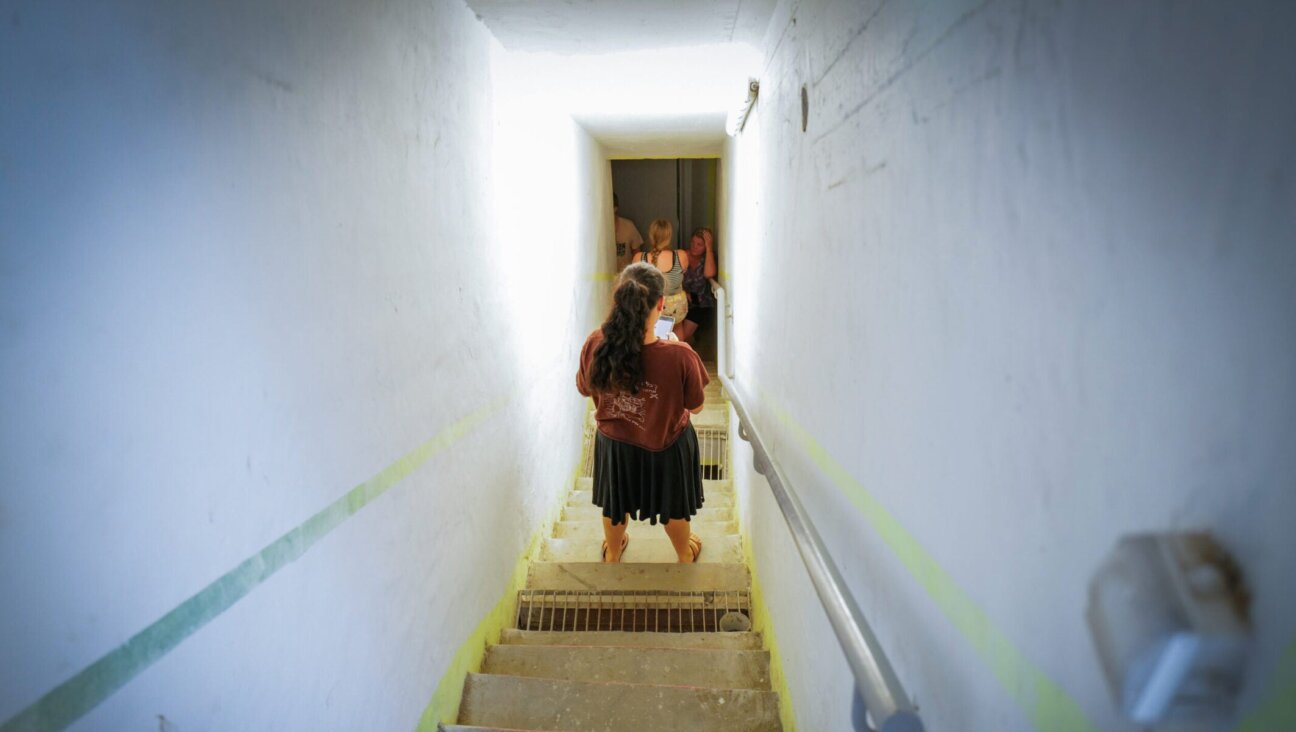U. Penn Researchers: Orthodox Groups Distorted Our Report on Circumcision Rite

Graphic by Angelie Zaslavsky
The authors of a research report on metzitzah b’peh say their study is being distorted by defenders of the controversial ritual circumcision practice who claim that the procedure poses no risk of neonatal herpes to infants.
In an April 9 press release headlined “Ivy League Study Casts Doubt on Claims that Jewish Tradition Leads to Herpes in Infants,” a public relations agency representing Agudath Israel of America and several other ultra-Orthodox groups sought to debunk the public health consensus on metzitzah b’peh, or MBP. The press announcement claimed that a study conducted at the University of Pennsylvania “found little evidence to support the claim that circumcision ritual is infecting infants” with herpes simplex virus.
The announcement noted that the UPenn study was submitted as evidence in an appeal filed by the ultra-Orthodox groups, who are plaintiffs in a suit opposing regulation of the practice by New York City’s Department of Health and Mental Hygiene.
“We have been saying for years that the evidence attacking this religious practice is highly dubious, and now we have world class doctors agreeing with us.” Rabbi Gedaliah Weinberger, chairman emeritus of the Aguda’s board of trustees, said in the press release.
But in a statement released Monday, the University of Pennsylvania’s Center for Evidence-based Practice termed it “regrettable that our evidence review was manipulated for purposes other than advising physicians of important clinical risk factors for newborns.”
“The unpublished report was used without our knowledge or consent and importantly, without proper context,” the center’s statement said. “Further, a subsequent press release mischaracterized our review by implying that there is no causal relationship between circumcision performed with oral suction and the transmission of neonatal herpes simplex virus (HSV) when the full report on the existing evidence concluded this link does exist.”
MBP, a procedure practiced by some ultra-Orthodox mohels, involves a mohel orally sucking away the blood from the infant’s genital area after cutting off his foreskin during the bris, or ritual circumcision. The practice can infect newborns with herpes simplex virus type 1, according to medical authorities. While not serious for adults, neonatal herpes can be fatal for infants, or cause permanent cognitive or physical damage. A study published in a journal sponsored by the federal Centers for Disease Control found that infants definitely or likely to have been exposed to MBP during circumcision faced a risk of neonatal herpes 3.4 times greater than that of newborns outside this group.
Most mohels in this country use a sterile pipette for suctioning the blood. But many ultra-Orthodox mohels consider direct suction of the genital area by mouth to be mandated by the Talmud as part of the religious rite.
The UPenn study was submitted by the Aguda, the Central Rabbinical Congress of the United States and Canada, and the International Bris Association in their most recent court brief filed in the U.S. Second Circuit Court of Appeals on April 8. Their suit challenges a New York City regulation requiring a mohel to obtain a signed consent form from the parents of a newborn before performing direct MBP on the infant as part of a ritual circumcision.
In an April 10 email to the Forward, Joel Betesh, the project director of the study cited by the plaintiffs, wrote, “I do not agree with the way they are portraying our report.” Betesh requested to speak with a Forward reporter the following day. But all future communication involved a UPenn press spokesperson. Betesh and Brian Leas, the lead analyst of the study, have not returned further requests for an interview.
It is not clear how the plaintiffs got hold of the center’s study, which was unpublished, for use in their court suit, or how and why the center chose to review the evidence linking metzitazh b’peh to neonatal herpes in the first place.
The plaintiffs’ public relations agency, Sheinkopf Ltd — headed by the prominent Democratic Party political consultant Hank Scheinkopf — provided the Forward with a full copy of the study on request on April 9, despite the fact that it had not appeared elsewhere. But in a separate statement, first published April 12 on the website Failed Messiah, a representative from UPenn said that the study was not peer reviewed and ““was an internal literature review.” The spokesperson reiterated this in an interview with the Forward April 15. “The request was internal only with no connection to any outside group,” said Susan Phillips, senior vice president for public affairs at the University of Pennsylvania Health System.
Earlier this month, the DOHMH announced that a second child this year had been diagnosed with herpes after circumcision involving MBP. The department did not respond to requests for comment on the UPenn study.














